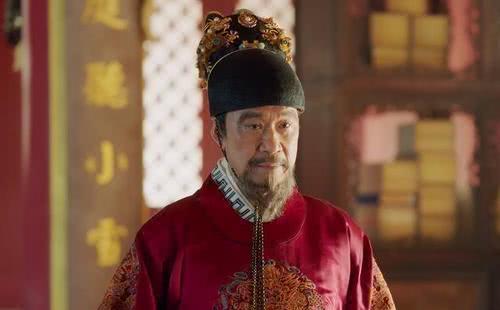Recently I saw a very interesting question on the Internet:
"If Emperor Jianwen Zhu Yunjiao did not set himself on fire and sat in the palace, would Zhu Di dare to kill him?"
First of all,
Whether Zhu Yunjiao "self-immolated" or not is controversial in history
The History of the Ming Dynasty only records:
"The palace is on fire, and the emperor is missing"
。 Therefore, some people say that Zhu Yunjiao burned himself to death in the palace, some people said that he escaped from the palace in chaos, and even some people said that he became a monk. In short, there are many opinions, and even now there is no accurate answer.
So the question is, if Zhu Yunjiao did not set himself on fire (or fled), but sat in the palace waiting for Zhu Di's army to come, then would Zhu Di, as the emperor's uncle, dare to kill him?

First of all, we must make it clear that Zhu Di launched the "Battle of Jingnan", called "Qing Junfang", which was actually a usurpation of power and seized the throne. Therefore, he was bound to kill Zhu Yunjiao, because only in this way could he sit on the throne smoothly.
Imagine if Zhu Yunjiao was still alive, then would he return to Beijing after he had finished his reign? Or do you want to stay in Nanjing?
Therefore, at this time, Zhu Di, who was determined to become emperor, would naturally get rid of Zhu Yunjiao to avoid future troubles. However, Zhu Di would not get rid of him immediately, but would first force him to cede the throne to himself, then put him under house arrest, and finally put him to death.
Why?
It was very simple, because Zhu Di could only take these three steps to secure his throne!
Step 1: Persecute Zhu Yunjiao for the Zen position;
After Zhu Di reached Nanjing, he was bound to first carry out his so-called "Qing Jun's side", that is, to eliminate the ministers who had tricked the emperor into withdrawing his domain. But the clear-eyed people know at a glance, are you Zhu Di on the side of the Qing Emperor? You are a naked usurper of power. Of course, Zhu Di also knew what he was doing, even if he could hide it from himself, could he still hide it from the people of the world?
Therefore, after the end of the Qing Dynasty, he had to start attacking the throne, and there were two ways to seize the throne:
One is through Zen concessions, and the other is by force.
However, for Zhu Di, these two were actually usurpers, but the former was more legitimate than the latter, after all, it was given to him by Emperor Jianwen.
If anyone was not satisfied with this, Zhu Di could also use his malicious slander against the emperor to execute him.
But if it is the latter, it is different, the subjects under the whole world feel that his throne was stolen, if Zhu Di kills people because of this, then the crime of usurpation of the throne will also be confirmed, which is heavier or lighter, Zhu Di cannot be unaware!
Therefore, after Zhu Di invaded Nanjing, he would not immediately execute Zhu Yunjiao. So what will he do?
Step 2: Put them under house arrest;
After the first step is completed, Zhu Di can sit on the throne. Of course, at this time, there must still be courtiers of the Jianwen Dynasty who gritted their teeth at what Zhu Di had done, and Zhu Di, who had just taken the throne, needed someone to assist him, so it was important to consolidate people's hearts!
To this end, Zhu Di would eat and drink Zhu Yunjiao to "offer up", in order to let these courtiers know that the new emperor did not abuse the old emperor, but let him enjoy the glory and wealth. In this way, not only can the resentment of the former courtiers against Zhu Di's usurpation of the throne be alleviated, but also the will of Zhu Di can be highlighted from the side, so that everyone can understand that the new emperor is not so bad!
Of course, all that Zhu Di did was only to make the subjects of the world gradually forget about this matter, to forget Zhu Yunjiao, who had only been emperor for a few years, and only remember that the current emperor was Yongle, not Jianwen.
When the time is ripe, Zhu Di can carry out his third step!
Step 3: Get rid of Emperor Jianwen Zhu Yunjiao;
Maybe you will say: "Since Zhu Didu has become emperor, why should he be put to death?"
This brings us to the emperor's "sense of security."
The most secure person in the world is the beggar, and the most insecure is precisely the emperor.
Quite simply, because of their high authority, a sense of fear arises, and the greatest fear is the fear of someone else taking their place, and the fear of death!
Although after the completion of the second step, most of the subjects of the world also obeyed Zhu Di, but there were also many henchmen of Emperor Jianwen, although they were a minority, but it was enough to make Zhu Di feel fearful.
Therefore, he must get rid of Zhu Yunjiao, first, to cut off the thoughts of these henchmen, and second, to eliminate his fears. Only in this way can Zhu Di's throne sit safely.
Of course, the above answer is just the author's words, after all
"All history is contemporary history"
, so everyone's view is different. You're also welcome to give your opinion!